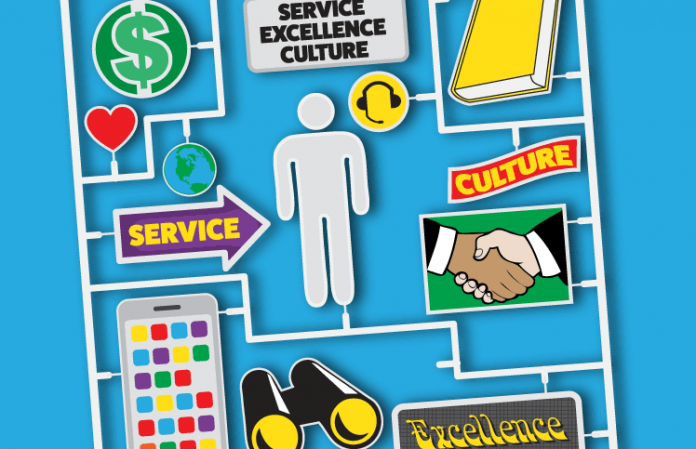
In a business sense, culture is defined (by Merriam-Webster) as “the set of shared attitudes, values, goals and practices that characterizes an institution or organization.” But the key to the culture is not simply having a set of core values—it’s the expected behaviors that are attached to those values, says Tim Kuppler, director of culture and organization development for organizational culture consulting firm Human Synergistics International, author of Build the Culture Advantage, and co-founder of the workplace culture educational website CultureUniversity.com.
While an organization’s core values are initially created by its leaders, every employee will interpret those values from his or her own perspective, Kuppler points out. The qualities and principles typically included in corporate core values, like integrity, teamwork, innovation and accountability, will have unique meanings for each individual. “The key is to engage the entire organization in the language that you’ll use to define your values so that you can connect it to the expected behaviors,” he says.
That is also a good exercise to keep in mind when establishing a customer-centric culture. If your goal is to create a companywide mindset in which every single employee is focused on delivering an excellent customer experience, the first step is to develop a definition that is clear, attainable and shared by every function.
UP! Your Service Founder and Chairman Ron Kaufman, author of Uplifting Service, offers a process for defining a service excellence culture. He advises leaders to ask employees across the organization to answer the following questions:
What is “service”?
That might seem like a no-brainer for customer service and contact center leaders, but your frontline staff and other functions in your organization—especially those in non-customer-facing roles—will likely have very different responses to this question.
Kaufman defines it this way: Service is taking action to create value for someone else. “With that definition, every single position in the company becomes a service position—because there is no position that exists within an organization whose purpose, ultimately, is not to create an outcome that is needed by someone else,” he says. “Asking this question is an important first step to getting all of the internal non-customer-facing departments to recognize that they are all in customer service. Their job is to create value for the people they serve and, in many cases, that is their colleagues in customer-facing roles.”
What is “excellence”?
In most organizations, excellence is defined by specific performance levels, rankings or ratings. But Kaufman argues that excellence is the action of improvement—which is essential in today’s business environment where expectations are continuously rising. “Excellence is stepping up to the next level,” he says. “It’s the focus and intention of doing better than you’re doing now.”
Using Kaufman’s definition, even low and average performers can demonstrate excellence by improving their performance—for instance, by moving from poor to average, or average to good.
What is a “service excellence culture”?
Combining the two concepts can produce the type of culture where each individual recognizes that the purpose of his or her job is to create value for someone else, and they’re constantly looking for ways to create more value. Kaufman adds: “When everybody in an organization recognizes that and embraces it, that is a service excellence culture.”



